Howard LaFranchi, (in a rather superficial treatment), raises an interesting issue: Does it matter that Obama has no foreign friends?
When French President Nicolas Sarkozy and his wife, Carla Bruni, sit down for dinner with the Obamas in the White House family dining room March 30, it will be a rare occasion for Barack Obama: a private, personal, perhaps even chatty evening with another world leader.
Fourteen months into the Obama presidency, one striking feature of an American president who took office to a swooning world is the absence of any strong personal ties – or even a go-to working relationship – with any other world leader. Where Ronnie had Maggie, and Bill and even George W. had Tony, Mr. Obama has no one leader. Instead, the former law professor has what seems to be a preference for big-themed foreign speeches (think Cairo; Prague, Czech Republic; Moscow; Accra, Ghana) and policy gatherings (his UN nuclear summit, the Pittsburgh Group of 20 economic summit, a White House nuclear nonproliferation summit in May) bereft of the warm and fuzzy.
Even the Sarkozy dinner seems to be more an amendsmaker than a familiar, “Hey Sarko, why don’t you come on over for dinner and some one-on-one conversation?” When the Obamas were in Paris last year, Obama turned down a dinner invitation to the Elyseé Palace, ostensibly so he could take Michelle out for a private night on the town.
Obama’s cool, all-business demeanor with his global peers is all the more striking because it follows the polar-opposite style of George W. Bush.
It’s inevitable that Obama gets contrasted with Bush. After all, Obama got elected in large part by virtue of not being Bush. But the contrast in personalities tends to obscure a more important issue by casting this shift as something akin to a seasonal change — from warm to cool.
Stephen Hess is no doubt correct in pointing out that personal relations with foreign leaders may not ultimately dictate policy choices of an American president, but the significance of Obama’s aloofness may rest less on what we can predict about its specific political effects than in what it tells us about the president’s self-image and his relationships with others — not just other world leaders.
To the extent that an American president cultivates a rapport with his foreign counterparts, the significance in his doing so seems to be to be that at least to some degree he sees himself as part of a peer group. But to the extent that Obama does not believe he has peers, this will likely lead to a dangerous and corrosive form of isolation. The more isolated he becomes, the fewer checks and balances there are that can be applied to his own judgment.
And let’s not forget, this is an administration in which the president is surrounded by an exceptionally small inner circle of advisers who seem to prize their closeness above their capacity to advise.
Obama may be a great speech maker, but that doesn’t make him a great communicator.



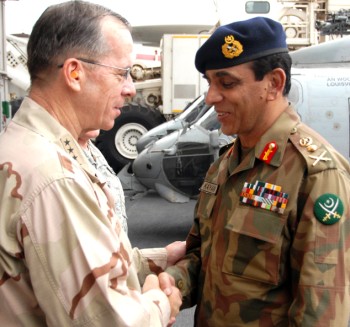 In a sign of the mounting power of the army over the civilian government in Pakistan, the head of the military, Gen. Ashfaq Parvez Kayani, will be the dominant Pakistani participant in important meetings in Washington this week.
In a sign of the mounting power of the army over the civilian government in Pakistan, the head of the military, Gen. Ashfaq Parvez Kayani, will be the dominant Pakistani participant in important meetings in Washington this week. The siege of Gaza, which Israeli tightened when Hamas took control in June 2007, makes women’s lives much more complicated.
The siege of Gaza, which Israeli tightened when Hamas took control in June 2007, makes women’s lives much more complicated.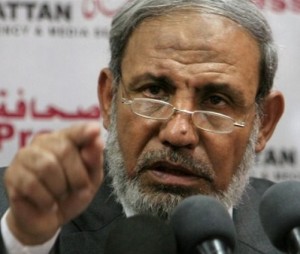 Hamas strongman Dr. Mahmoud al-Zahar on Saturday night slammed the Palestinian groups firing rockets at Israel. Zahar told the Iranian al-Alam television station that the rocket fire was a “suspicious action aimed at allowing the enemy to gain points in its favor in the public opinion and divert the attention from its crimes in the territories.”
Hamas strongman Dr. Mahmoud al-Zahar on Saturday night slammed the Palestinian groups firing rockets at Israel. Zahar told the Iranian al-Alam television station that the rocket fire was a “suspicious action aimed at allowing the enemy to gain points in its favor in the public opinion and divert the attention from its crimes in the territories.”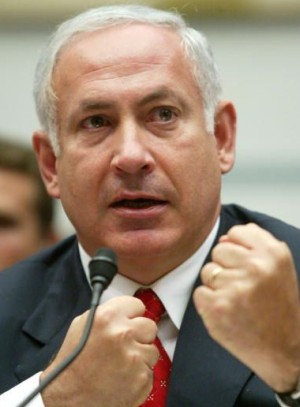 Netanyahu summed up his core thinking in his 1993 book, A Place Among the Nations: Israel and the World, when he said it was naive for Israelis to believe that “Arabs loathed war as much as they themselves.” He derided Israelis who thought of peace as “a kind of blissful castle in the clouds, a Jewish never-never land in which the Jews will be able finally to find a respite from struggle and strife.”
Netanyahu summed up his core thinking in his 1993 book, A Place Among the Nations: Israel and the World, when he said it was naive for Israelis to believe that “Arabs loathed war as much as they themselves.” He derided Israelis who thought of peace as “a kind of blissful castle in the clouds, a Jewish never-never land in which the Jews will be able finally to find a respite from struggle and strife.” Hamas has designated this day, in this place, its
Hamas has designated this day, in this place, its 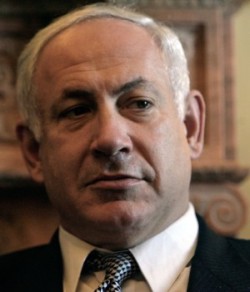 As Bill Clinton
As Bill Clinton 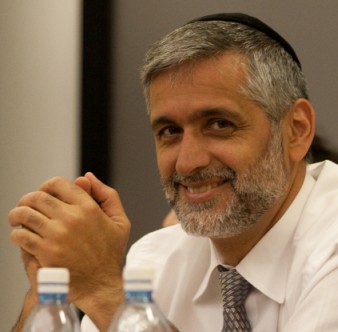 Here’s someone new to blame for everything: Eli Yishai. After all, Benjamin Netanyahu wanted it so much, Ehud Barak pressed so hard, Shimon Peres wielded so much influence – and along came the interior minister and ruined everything.
Here’s someone new to blame for everything: Eli Yishai. After all, Benjamin Netanyahu wanted it so much, Ehud Barak pressed so hard, Shimon Peres wielded so much influence – and along came the interior minister and ruined everything. 